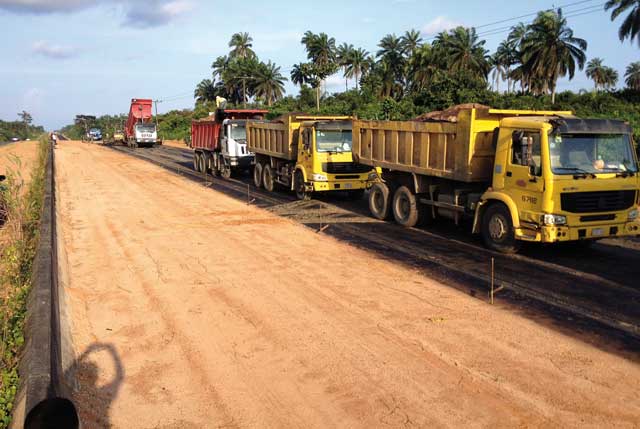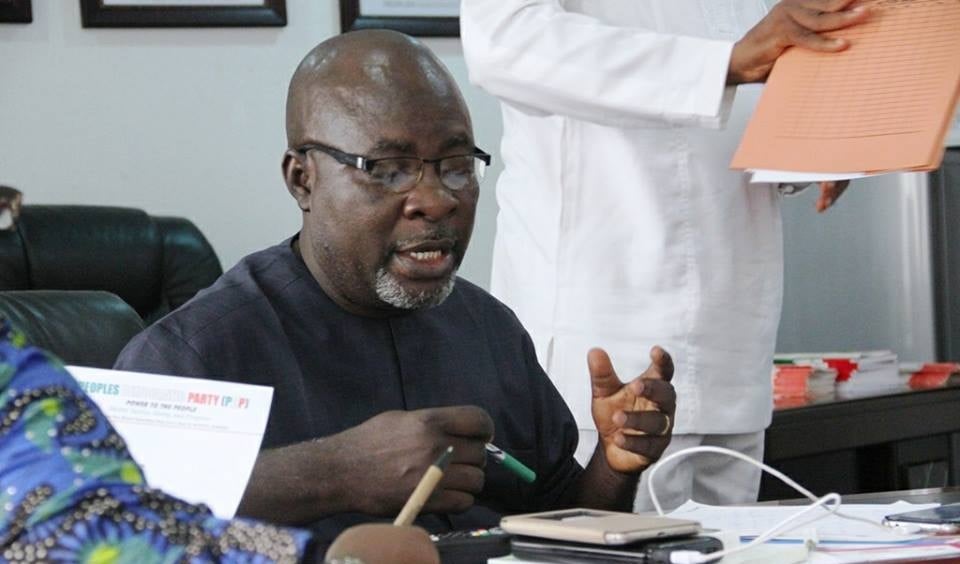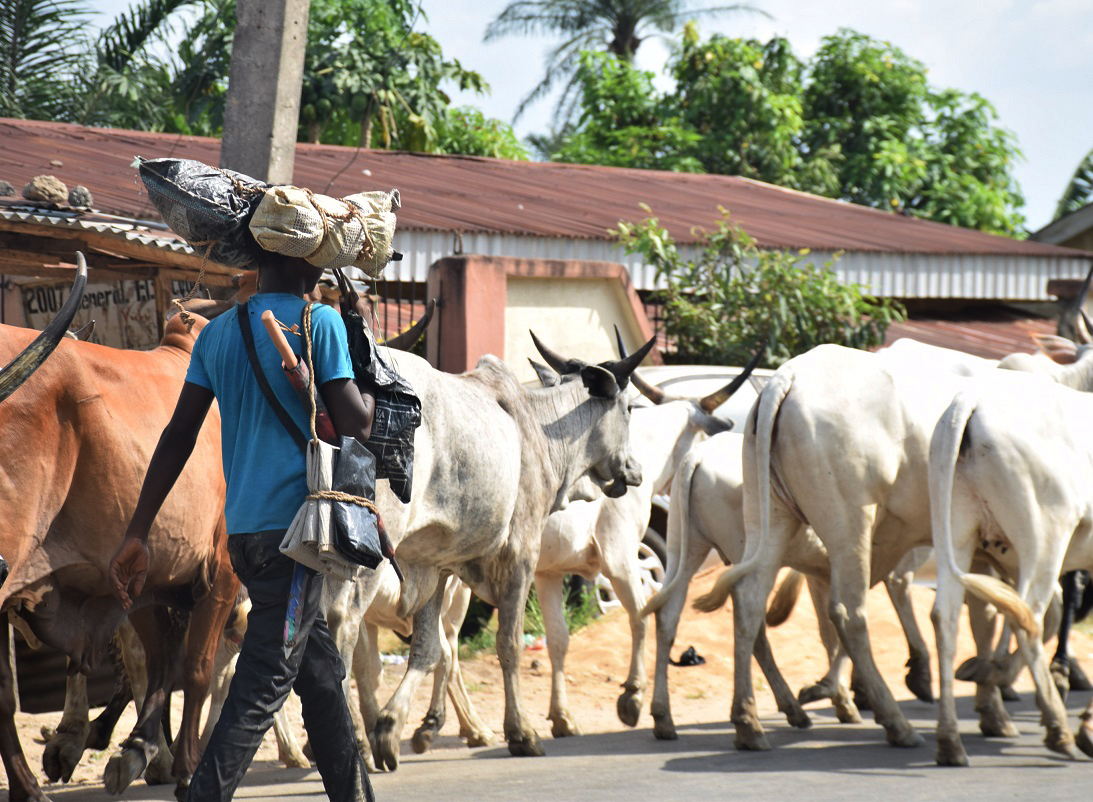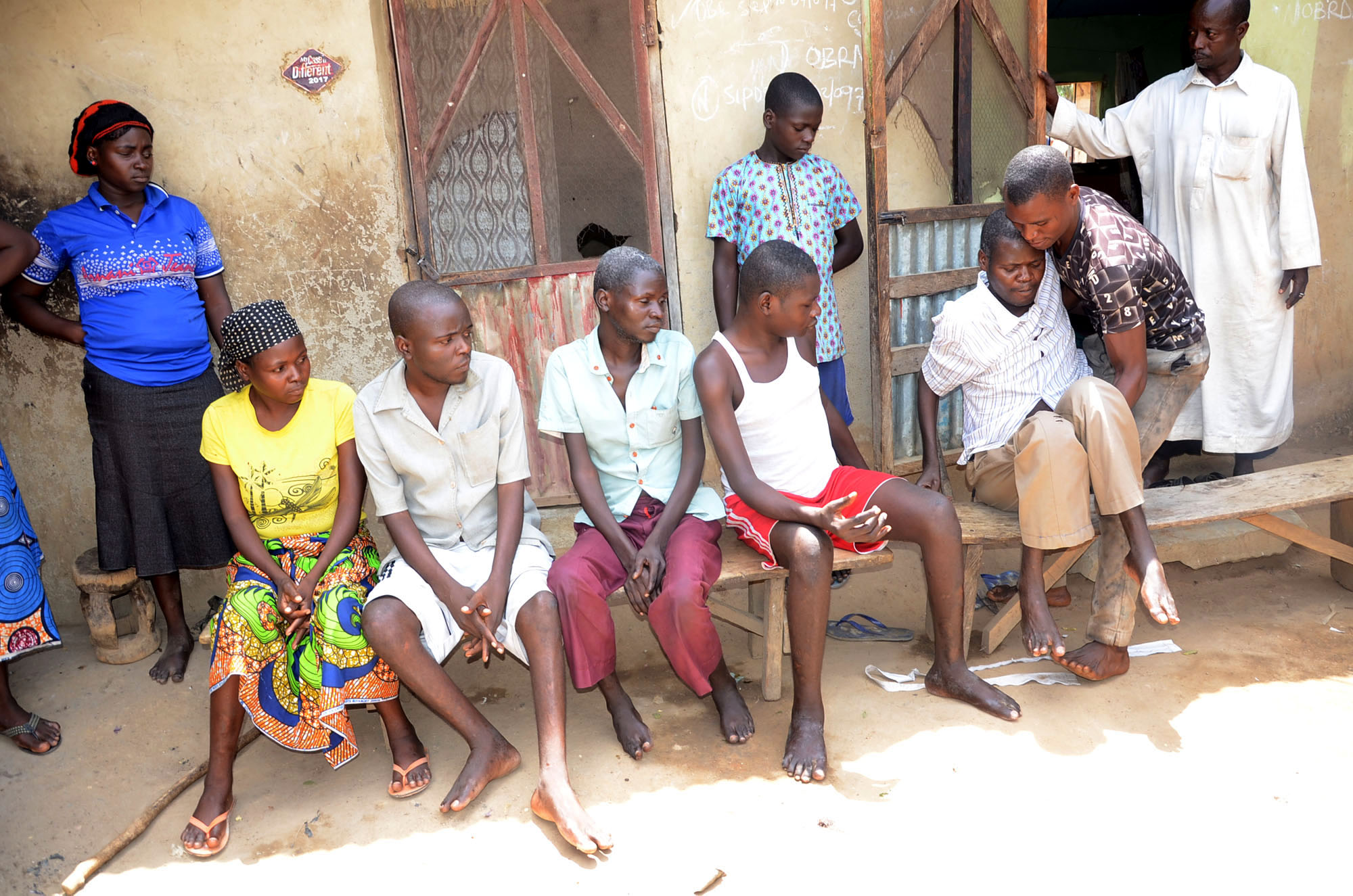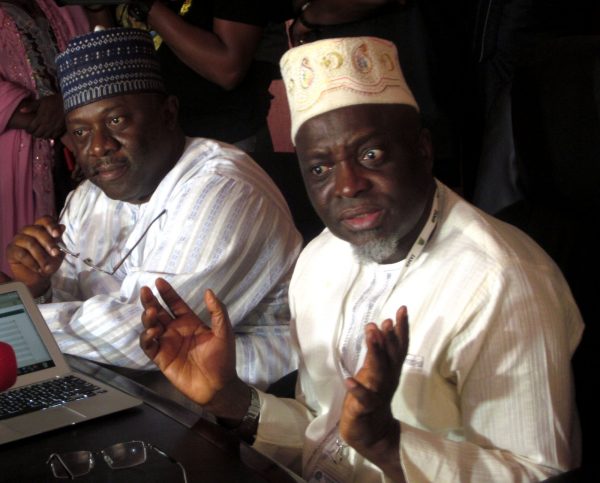East-West road under construction
The federal executive council (FEC) has approved N47 billion for the repair of three roads.
The roads to be rehabilitated are Baban Lamba-Sharam road in Plateau state, Lagos-Ota-Abeokuta and Enugu-Port Harcourt road.
Speaking with journalists after the FEC meeting presided over by Vice-President Yemi Osinbajo, Babatunde Fashola, minister of power, works and housing, said the Lagos to Abeokuta road was first awarded in 2000 but was left uncompleted “because they want no budgetary provisions for it”.
“The ministry of power, works and housing got approval for three memos. One was for Baban Lamba-Sharam Road in Plateau state for the contraction of 44.625 kilometers for N19.392 billion,” he said.
Advertisement
“The second was for Lagos-Ota-Abeokuta Road 81 kilometers. That road was first awarded in year 2000 and it has since been left uncompleted because they want no budgetary provisions for it.
“This administration in trying to move this contractor to site stated the revision of the rate. So the revised rate were brought to council today and a revision of N22 billion was approved for the 81 kilometers road, bringing the total contract price to N56.701 billion.
“The third approval was for the section four of the Enugu Port Harcourt road, the part between Abia and Port Harcourt, particularly in Port Harcourt that has been problematic and has failed severally. We have a contractor there but we needed to change the design because of the storm water drainage needs and the high water tables there so that the road does not fail.”
Advertisement
On his part, Rotimi Amaechi, minister of transportation, said council approved N13 billion for the dredging of Warri seaport in Delta state and refurbishment of its navigational facilities.
Abdurahman Danbazzau, minister of interior, said council approved N234 million for the upgrade of the Nigeria Police Academy.
The minister said two faculty buildings, a cafeteria and cadets’ mess and other important infrastructure would be built at the academy.
Also, Suleiman Adamu, minister of water resources, said his ministry drew the attention to water crisis and sanitation facing country.
Advertisement
“We highlighted the fact that urbane water supply is regressing, access to improve sanitation has also decreased over time that we have not be able to meet the Millennium Development Goals and that works services in the rural areas are unsustainable, and spending on water sector has declined by .7 percent to .72 percent of the GDP in 2010,” he said.
“We submitted a memo to council to approve an action plan on how to address these issues. We had three prayers for the council to approve the action plan: to declare a state of emergency on water and sanitation sector; to approve the establishment of Water, Sanitation and Hygiene Fund for the country.
“This fund will be one that federal, states and international donors can put in money so that we can begin to address the crisis water and sanitation sector in the country.
“We also requested that henceforth the budget for water and sanitation in the country to be significantly increased so that we will be able to face these challenges. Council accepted our prayers and we will move on.”
Advertisement
Editor’s note: The picture was used for illustrative purposes
Advertisement
Add a comment

